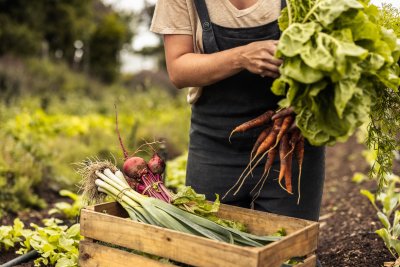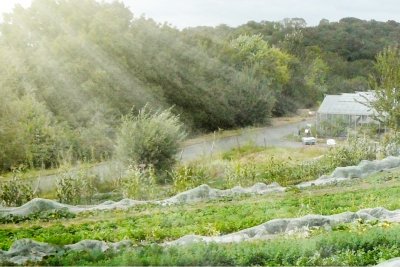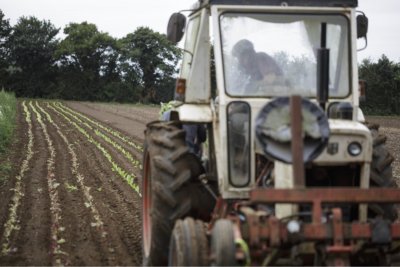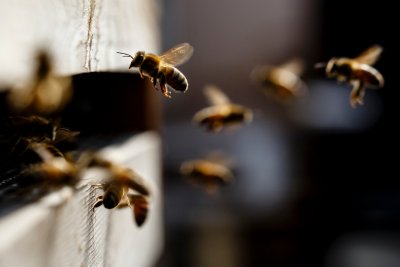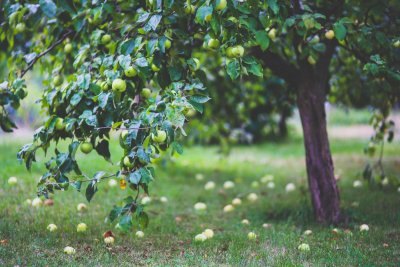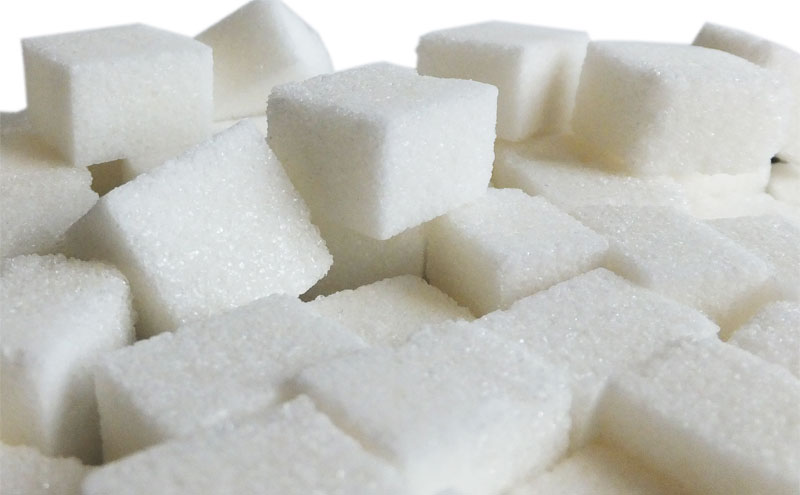
Submission for EFRA Committee Inquiry: Trade in sugar post-Brexit
Sustain submitted the following submission for the House of Commons EFRA Committee Inquiry on how the sugar industry will be affected by Brexit and the options for an optimal trade policy surrounding sugar following-Brexit.
Sustain advocates food and agriculture policies and practices that enhance the health and welfare of people and animals, improve the working and living environment, enrich society and culture and promote equity. We represent around 100 national public interest organisations working at international, national, regional and local level.[1] Sustain coordinates the Sustainable Farming Campaign, the Campaign for a Sugary Drinks Tax and the Sugar Smart campaign. We work with our members and others to promote integrated healthy and sustainable policies and practices for food, farming and fishing.
In summary - We are clear that major new flows of cheap sugar are not in public or domestic or existing African, Caribbean and Pacific (ACP) farmer interest – given that overall UK policy is to reduce sugar consumption to tackle the huge social, health and economic costs of obesity, tooth decay, diabetes and other diseases related to high consumption of sugar and sugary processed foods. New flows would come at the expense of both UK beet farmers and sustainable ACP producers (who need access to UK markets for poverty alleviation), and undermine policy measures such as the Government’s Childhood Obesity Plan, new Soft Drinks Industry Levy (sugary drinks tax) and Public Health England’s Sugar Smart initiative, by making sugar cheaper again.
Enhancing the quality standard (for instance to protect environment and nature objectives) and diversification strategies for both farmers and workers should be key objectives to deliver for a ‘less and better’ sugar demand. Finally we need full transparency and parliamentarians to have scrutiny over trade policy and trade deals and sectoral impact assessments should be part of this.
We have the following comments in response to the EFRA Committee’s Inquiry questions:
- What challenges and opportunities will the UK sugar industry face from new trade arrangements with EU countries post-Brexit?
The sector is already in flux with the removal of EU quotas and a new system of farm support for the UK after Brexit. As the main British beet sugar value chain supports up to 9,500 jobs in the UK economy, uses beet from around 3,500 growers and directly employs a workforce of 1,400[2] this is an important sector for local jobs but not a huge one compared to other food sectors. Beet processing into sugar and other products (including the soil residues into top soil for sale) is a locally important employer albeit one which has shrunk over the years. There is new interest in sugar as a feedstock for the bioethanol industry but again there are some issues there with weaker renewables policy, possible loss of biofuel subsidies, and the market environment being volatile and less attractive at present. This is also a highly concentrated supply chain compared to most.
The government has also made a clear signal to the food sector that sugar consumption needs to fall to tackle the huge cost of ill health resulting on over sugary diets.
All these indications point to the need for farmers to consider diversification out of beet (or for new uses e.g. livestock feed, ethanol) or enhancing quality standards such as organic which would delivery additional goals of pesticide reduction, as well as soil and nature conservation.
Diversification into new products will be a risk but should be supported by the new farm policy environment in the UK, considering the demand for new products and import substitution in, for instance, fresh fruit and vegetables. We would advocate strong measures to support farmers wishing to take the risks, which could involve training and business support, facilitation and support in accessing new markets such as in public procurement, capital grants for new equipment and longer term ‘public money for public goods’, supporting nature and environmentally friendly production.
Regarding quality standards there are a number of issues. The UK beet crop is a highly valuable and well protected one, vulnerable to insect damage, insect vectors, and weed competition. It provides a valuable crop in a rotation and breaks up the soil but it also exhausts the soil so the rotation is vital. It requires heavy care and can result in considerable soil loss when harvested. The crop does support some key wildlife species - providing an important nesting habitat for lapwing and stone curlews and feeding site for pink footed goose, for example. Ensuring these are protected in any transition will be vital but possible and there could even be a marketing link (Lapwing-Friendly sugar?).
There is no organic sugar production in the UK for processing and whilst none is currently anticipated, a new supply has been commissioned in Northern Europe so demand is there. The UK could be driving demand and supporting organic conversion and Integrated Pest Management methods here. Segregation of the processed material is a key constraint to development of organic as are the pest and weed pressures so this would need adequate development phase and support.
There is heavy use of herbicides and pesticides on the UK beet crop. Almost all the UK beet seed used has a neonicotinoid seed treatment as it is highly effective at controlling 15 insect pests including peach potato aphid which is a major vector for virus yellow disease. Leaf miner is growing as a pest issue. Neonicotinoids are now known to be hugely harmful to crucial insects including vital pollinators such as bees. The use of the seed treatment means risk is almost entirely removed yet the universal usage is creating a significant selection pressure for pest resistance. The Netherlands operates a more selective approach which is worth investigating and results in lower use.[3] The European Commission is now proposing to extend its restrictions on neonicotinoid pesticide use to most other crops, including sugar beet and wheat. So action is needed and change is possible.
There are no easy solutions available to the beet farmer if neonicotinoid seed treatment is removed, but the industry is working on approaches with a range of publicly and privately funded studies and monitoring activities. These include sophisticated aphid and disease forecasting and monitoring systems; genetic resistance to diseases and vectors; and alternative chemical controls (though these have issues due to availability, limited use or resistance). Other methods include enhancing biological controls and organic approaches which include crop selection, crop rotation, inter-cropping, establishing predator pest habitat, but these may currently not be valid in terms of economic thresholds of damage to yields which have grown consistently. More research is clearly needed and should be a focus for investment.
- How should the deficit in sugar that will accompany the departure from the EU be filled?
The UK could ensure Fairtrade producers and others in ACP countries have the same preferential agreements that the current ACP producers have with the EU to fill a deficit. These measures could help ensure that UK sugar imports support fairly traded supply chains, rural communities and socio economic development to meet UK sustainable development goals.
However, given the need to see a reduction in sugar consumption over time, we see a deficit as an opportunity to drive sugar reduction targets in the food industry (and not replacing sugar with high fructose corn syrup) and help farmers here and overseas diversify out of sugar for food markets.
- How can future policy best address trends in the sugar industry such as a falling world price and decreased consumption?
As noted above, we see a reduction in sugar consumption as a good outcome given the need to address costly diet-related diseases. A falling world price should not facilitate greater imports but provide the spur for farmers to diversify out of sugar, with government actively supporting that transition. Making sugar a higher value occasional treat, such as with organic certification, would be a possible route for some producers. Many experts are also advocating that government should be boosting fruit and vegetable production to meet domestic demand via fiscal measures in the new era of farm policy.[4] This could provide the opportunity and tools (including finance and training) needed for farm diversification.
- What trade policies and agreements could achieve a balance between protecting domestic and infant industry, competitiveness and free trade and supporting the sugar industry in LDC and ACP countries?
We support continued Fairtrade access to our market and want to see a continuation of preferential access for both African, Caribbean and Pacific (ACP) and Least Developed Country (LDC) origin raw and refined sugars to the UK market, as currently granted by the EU. We need to see market access for sustainably produced sugar in line with poverty reduction commitments and the UN Sustainable Development Goals.
We should ensure consultation with producers in LDC and ACP countries in development of new trade policies and free trade agreements with all third countries, including the EU and timely impact assessments for developing country farmers as well as our own on deals that may affect their markets.
- What are the opportunities for export for the UK sugar beet industry post-Brexit?
We would suggest caution on this, unless for non-food purposes, as globally the trend in obesity and other diet-related disease associated with sugary foods and beverages is beginning to be addressed by governments worldwide in new policies[5]. Reducing sugar consumption, industry reformulation of products and making sugar more expensive (via taxes for instance) are likely to be part of those strategies, so UK producers would be better off looking to fill UK demand for quality produce or diversifying out of sugar. The EU may demand access for EU beet (and ACP cane sugar from territories) as part of the new trade deal and this element needs to be factored in.
We would also suggest that the EU may demand UK market access for isoglucose (high fructose corn syrup) as part of any post-Brexit deal. What would the impact be on farm incomes and sugar price? The European Commission have suggested isoglucose production in Europe could triple after removal of restrictions.[6] Equally of concern is the possible demand for US market access for isoglucose and tariff-free access on processed foods containing it, and lobby for removal of food regulations that restrict them. These have been heavily pushed in other trade deals (e.g. NAFTA, MERCOSUR) so this is not out of the question. These are major queries we hope the EFRA Committee will investigate and we are concerned any trade deal that facilitates and increase in imports of these products as commodities or ingredients will be detrimental to the nation’s health and environment as well as farmer incomes.
Vicki Hird MSc FRES
vicki@sustainweb.org 07903478249
Sustain: the alliance for better food and farming
February 2018
[2] From British Sugar website https://www.britishsugar.co.uk/
[3] Farming Sugar Beet without Neonicotinoids, November 2017 https://cdn.friendsoftheearth.uk/sites/default/files/downloads/Sugar%20Beet%20briefing_FOE_Buglife_PAN_November%202017_0.pdf
[4] see for instance https://www.city.ac.uk/news/2017/march/tim-lang-book-sustainable-diets https://www.sustainweb.org/publications/beyond_2020_new_farm_policy/
and https://foodfoundation.org.uk/wp-content/uploads/2017/11/Farming-for-five-a-day-final.pdf
[5] 26 countries have so far introduced sugary drinks taxes of some sort. The World Health organisation is advocating the measure. https://www.theguardian.com/society/2016/oct/11/world-health-organisation-who-countries-tax-sugary-drinks
[6] The end of the sugar production quotas in the EU Sept 2017 http://europa.eu/rapid/press-release_MEMO-17-3488_en.htm
Sustainable Farming Campaign: Sustain encourages integration of sustainable food and farming into local, regional and national government policies.
Sustain
The Green House
244-254 Cambridge Heath Road
London E2 9DA
020 3559 6777
sustain@sustainweb.org
Sustain advocates food and agriculture policies and practices that enhance the health and welfare of people and animals, improve the working and living environment, promote equity and enrich society and culture.
© Sustain 2024
Registered charity (no. 1018643)
Data privacy & cookies

